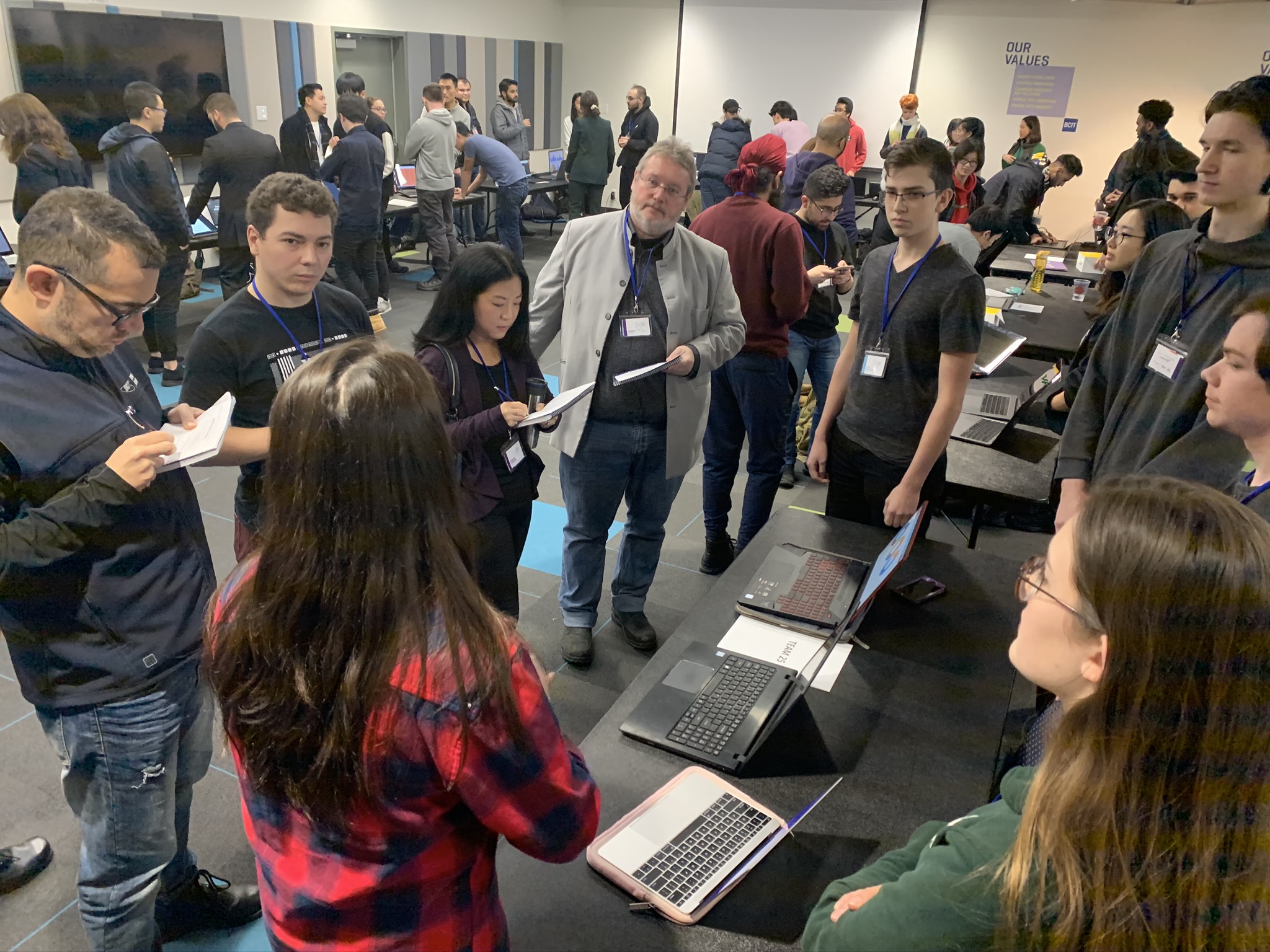How can we use data to gain insight for business and society?
This was the challenge facing over 125 students at this month’s BCIT Student Association (BCITSA) QDS Hacks 20. The interdisciplinary hackathon saw teams comprising computing and business students working to ideate and develop a prototype, along with a scalable business model.
Real solutions for real-world problems
“As data collection becomes ubiquitous, our abilities to manipulate and create useful insight so too evolves,” explains event lead and BCITSA President Justin Cervantes.
As a Computer Systems Technology Diploma student, Justin took on a lot to organize one of the largest student-run events at BCIT. The event ran overnight at the Burnaby Campus, fueled by energy bars and power naps.
“One of our primary goals of the event is to bring together the student community to apply their technical knowledge, and to challenge them to think critically about real world problems concerning the interpretation of data,” says Justin. He says the event aimed to foster “not just qualified entrants into the labour force, but questioning, economically aware, curious, creative, and unstoppable people.”
Support from industry
Presenting sponsor was the BCIT Centre of Excellence in Analytics – Powered by SAP, along with support from Northeastern University and Teck.
SAP’s Flavia Moser helped kick off the competition with some thoughts on the importance of analytics as a skill of the future. As Lead Product Expert at SAP, she emphasized that the value of data is in its extraction.
“Data in itself is just an asset – exploration, manipulation and analysis of this data is critical to extracting business value,” she advised. She encouraged students to help further a culture of data-driven decision making, built on their analytical skills.
Five solutions on the main stage
After two rounds of judging, the top five teams presented on the main stage in the Great Hall.
Judge and BCIT Computing Associate Dean, Mike Starkey, was impressed. “The event showcased how students are using what they’re learning at BCIT to solve real world problems.”
He felt their solutions were innovative, relevant, and demonstrated business value. After 30 years in industry, he also knows that technical expertise needs to be rounded out by critical interpersonal competence. “They used their communications skills to pitch their ideas, which were well received by the judges,” says Mike.
The top project of the weekend was Fabio Dos Santos, Seong Jun Yeon, Roelle Kim, Maksym Chumak, and Tanush Verma’s “Park & Save” App.
Park & Save guides users to free parking or meter spots, improving access to affordable parking. The team envisioned potential expansion to other cities, and said the app can accommodate millions of parking spots.
“It was a lot of fun,” according to Tanush. “I think we won because we kept our scope small and expandable, focusing on being able to actually deliver a functioning application.”
As with all hackathons, the prize money and acclaim is wonderful, but the team-based learning that happens along the way – the exhilarating, exhausted, sweaty way – may offer the most value. “We want to encourage everyone interested in technology to sign up for hackathons,” says Tanush. “It is a great opportunity to learn, and build design and planning skills, regardless of coding ability.”
See more: BCIT students triumph at Silicon Valley hackathon with medical data app
